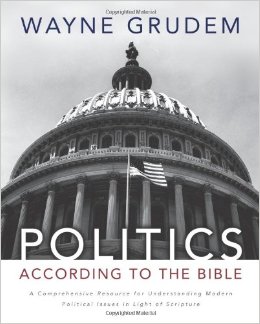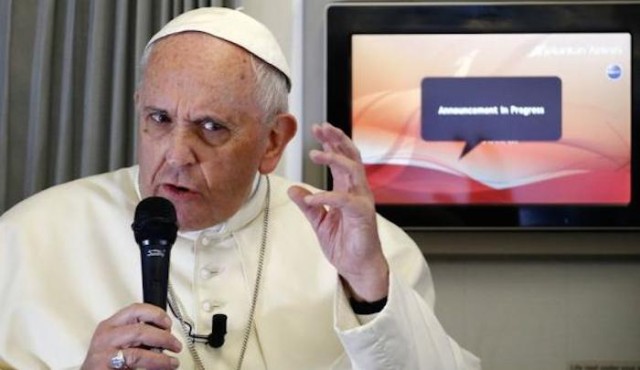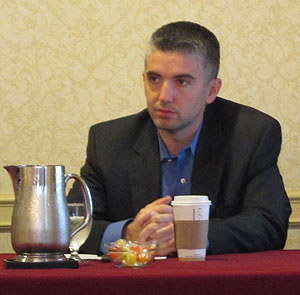I’ve just reacquainted myself with two seminal texts: Aristotle’s Politics and Ludwig von Mises’s Socialism. Though written nearly two and a half millennia apart, it’s remarkable how these two gigantically important treatises parallel each other.
They both come to the defense of property and realistic forms of political order in the face of all kinds of dreamers, fanatics, and would-be dictators. A central contribution of each book is to defend the institution of private property against its enemies, who, both Aristotle and Mises knew, would smash all that is wonderful about life.
They took different pathways toward the same goal. Aristotle focused on what makes people happy and permits the realization of the virtuous life. But he had very little conception of economics, and his theory of property was problematic, to say the least. Mises, on the other hand, focused on economic science, and presented a far more coherent vision of property, freedom, and economic growth.
Even so, they cover the same basic territory. What kind of social and political order is most conducive to human flourishing, and what is the role of private property and private life in this order?
Aristotle spoke of the impossibility of the realization of self under common ownership.
“In a state having women and children common, love will be watery; and the father will certainly not say ‘my son,’ or the son ‘my father.’ As a little sweet wine mingled with a great deal of water is imperceptible in the mixture, so, in this sort of community, the idea of relationship which is based upon these names will be lost; there is no reason why the so-called father should care about the son, or the son about the father, or brothers about one another. ”
The absence of ownership, then, leads to the disregard of one’s own life and the life of others. “How immeasurably greater is the pleasure, when a man feels a thing to be his own,” Aristotle writes, “for the love of self is a feeling implanted by nature and not given in vain…”
Everything is at stake: benevolence, gifting, appreciation, and even love. “There is the greatest pleasure in doing a kindness or service to friends or guests or companions, which can only be rendered when a man has private property,” writes Aristotle. “The advantage is lost by the excessive unification of the state.”
These are hugely profound insights. To be sure, Aristotle’s conception of private property is seriously marred by his defense of slavery, and he is reluctant to admit women into the realm of citizens who deserve what we call rights today. To read this material, one must always keep in mind how lost the contributions of the Enlightenment truly were on the ancient philosophers. They knew nothing of universal rights, freedom of speech, and freedom of religion. Still, given that proviso, we can see Aristotle working his way toward a coherent theory of the social order.
He goes further to condemn looting of property through the political system. “If the poor, for example, because they are more in number, divide among themselves the property of the rich, is not this unjust? … if this is not injustice, pray what is?” The reverse is also true, he wrote. It would be unjust for the rich to use their power and wealth to pillage the poor.
Aristotle repeats his injunction and summarizes: “I do not think that property ought to be common, as some maintain, but only that by friendly consent there should be a common use of it; and that no citizen should be in want of subsistence.”
Mises took this whole analysis much further. The first third of Socialism presents a complete theory of social order and the place of property within it. He treats property not as an ethic or plan from the top but as a technology, something created out of social consensus and made necessary by the existing of material privation.
The extension of the division of labor provides more opportunities for growing wealth, and, eventually the creation of money, which is the key to rational economic calculation in a modern economy. Without private property in capital goods, writes Mises, there is no hope for making sense of the main material challenges society faces.
We know about the opponents of Mises’s views. He was surrounded by an academic class of philosophers and economists who were generally sympathetic to the ideals of socialism. “Socialism is the watchword and catchword of our day,” he wrote. “The socialist idea dominates the modern spirit. The masses approve it. It expresses the thoughts and feelings of all; it has set its seal upon our time.”
Later in the book, Mises addresses prevailing religious ideas at the time, which had turned decisively to favor the socialist idea. He took them apart, one by one, showing that most of the religious thinkers of his day had no conception of the practical need for a thriving society to have modern economic institutions rooted in private property ownership.
Mises takes his argument further to point out that the end of property really is the end of freedom. Every would-be tyrant excoriates private property, not because communism would be great for the people but because private ownership is a barrier to the tyrant’s power and control. In its absence, power rules and there is nothing like freedom. Without private property, there can be no free press, freedom of religion, or freedom of association.
The parallels with Aristotle’s book are uncanny. I’m trying to think of the problems Aristotle faced in the 4th century, BC. There was the epic influence of Plato and his many pupils. Plato wrote, whether ironically or not, in favor of a communist utopia with no property, no families, no ownership, no private life, and he found this to be the only society that is consistent with justice and social harmony.
Aristotle took on Plato, who was representative of the first group of enemies of property in all times: the highly educated philosophy elite. So it ever was and ever shall be.
In addition, in Aristotle’s time, there was an official religion that was stable and reliable and he urged people to be faithful to it. It served the ruling class but it was not utterly insane. But the world must have been populated with self-proclaimed prophets everywhere, people serious about jazzing up the population with some frenzied dream. Always and everywhere this seems to have included the socialist idea. If we could just throw all things into the commons, all human division would disappear and utopia would appear!
This group, the mystics and spiritual dreamers, then, was the second group of enemies of property. Then and now.
But there was still another dangerous force in the land: would-be tyrants. They lie to people. They come to power through promises of democracy. They use the destabilization of revolution to displace one government and push a much worse one. Despots resent the private life of the people that ownership makes possible. They proclaim the wonders of common ownership, but the result of their visions is always the same: more power to the dictators.
We really do face a choice. We suffer under the tyrant’s boot or we uphold the sanctity of private ownership. Aristotle discerned this in the 4th century, BC. Mises drove the point home with his marvelous book of 1922. They lived in radically different times and spoke from a different perspective. But their concern was the same. Ownership and freedom are inseparable ideals, both in their times and in ours.
 Jeffrey A. Tucker
Jeffrey A. Tucker
Jeffrey Tucker is Director of Digital Development at FEE, CLO of the startup Liberty.me, and editor at Laissez Faire Books. Author of five books, he speaks at FEE summer seminars and other events. His latest book is Bit by Bit: How P2P Is Freeing the World.
 Want to run a nation right? Listen to what God says about it! “Politics According to the Bible: A Comprehensive Resource for Understanding Modern Political Issues in Light of Scripture” by Wayne Grudem.
Want to run a nation right? Listen to what God says about it! “Politics According to the Bible: A Comprehensive Resource for Understanding Modern Political Issues in Light of Scripture” by Wayne Grudem.




















